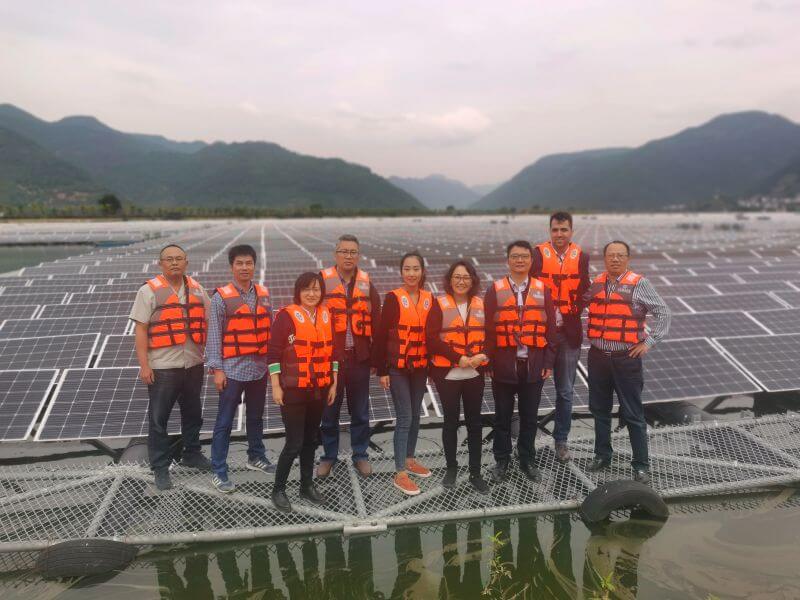Through the energy activities of the Sino-German Climate Partnership Phase 3, the project had established contact with the State Grid Energy Research Institute and their work to support the energy transition in Hangzhou. The city is known for hosting the headquarter of internet giant Alibaba, and a range of artificial intelligence, biotech, fintech, and smart production incubation parks. As the provincial capital of Zhejiang, a National Demonstration Province for the Energy Revolution, it significantly contributes to China’s energy transition. Between 2015 and 2019, the city reduced its share of coal in the energy mix from 37% to 19%. In October, members of the GIZ China energy team, respectively from the Climate Partnership and from the Sino-German Energy Partnership, traveled to Hangzhou. There, they assessed cooperation potentials in the fields of smart energy systems and energy efficiency in buildings. GIZ experts visited technology hubs, a smart city district, and a 20 MW floating photovoltaics project. Moreover, they discussed the city’s energy policy with provincial and local authorities, and with experts and officials from State Grid. Hangzhou is an example that shows how local companies and municipalities can implement a low-carbon energy transition on the ground. Since the energy activities of the Climate Partnership Phase III ended in October 2020, the Energy Partnership will continue the exchange and seek to deepen the cooperation.

GIZ energy team and State Grid Energy Research Institute staff visiting a floating photovoltaics project in Hangzhou in October 2020. Copyright by GIZ.
